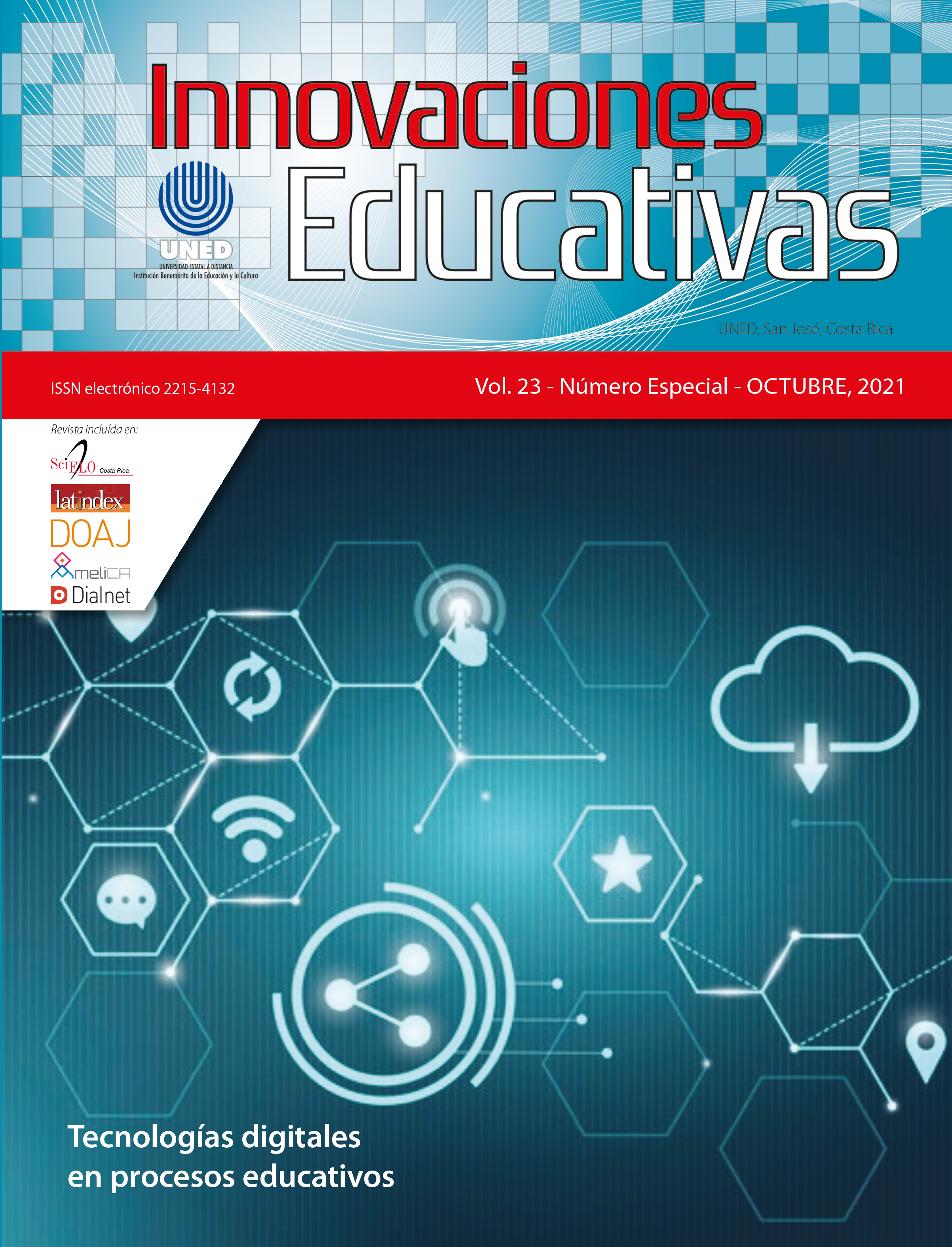Virtual course: STEM/STEAM education, conception and implementation. Experiences of its execution with Costa Rican teachers
DOI:
https://doi.org/10.22458/ie.v23iEspecial.3620Keywords:
STEAM, pandemic, context, educational innovation, education, professional trainingAbstract
The experiences are presented during a virtual course on STEM/STEAM education, addressed to teachers and administrative officials from different educational contexts, contents such as models and steps for their implementation were developed. Likewise, aspects such as the virtual environment used for its development and its respective interface stand out, as well as pedagogical mediation activities used, as well as their evaluation. It also shows part of the products made by the participants of the course, which highlight limitations and approaches, as well as designs of learning environments for the implementation of STEM/STEAM education in their corresponding educational contexts. The above, based on the investigation when implementing the virtual course, since the main purpose of this experience was to provide tools and considerations for the implementation of this type of education. Finally, highlight the limitations and approaches proposed by the participants, as well as the different proposals for STEM/STEAM education implementation projects, in which the scope, objectives, methodologies and their different forms of evaluation stand out.
References
Chan, M. (2016). La virtualización de la educación superior en América Latina: entre tendencias y
paradigmas. RED: Revista de Educación a Distancia, 48(1), 1-32
López, M. (2019). Implementación y articulación del STEAM como proyecto institucional. Latin American Journal of Science Education, 6(1).
López, M. [Marco López]. (2020, setiembre 05). Descripción de curso Virtual en Moodle 1. [Archivo de video]. https://youtu.be/lv515DhLRh8
Mishra, P. y Koehler, M. (2006). Technological Pedagogical Content Knowledge: A Framework for Teacher
Knowledge. Teacher College Record, 106(6), 1017-1054.
Prieto, D. y Pol, P. (2006). e-Learning comunicación y educación. El diálogo continúa en el ciberespacio. (1ª
ed.). San José, Costa Rica: Radio Nederland Training Centre.
The Arizona STEM Network. (2017). STEM Inmersion Guide.
Vásquez, J., Sneider, C. & Comer, M. (2013). STEM Lesson Essentials, Grades 3-8 Integrating Science, Technology, Engineering and Mathematics, Heinemann. Portsmouth, USA.
Vidal Ledo, M. J., Gavilondo Mariño, X., Rodríguez Díaz, A. y Cuéllar Rojas, A. (2015). Aprendizaje móvil. Educación Médica Superior, 6(1). 29(3), 669-679.
Yakman, G. (2008). STΣ@M Education: an overview of creating a model of integrative education. Pupils Attitudes Towards Technology 2008 Annual Proceedings. Netherlands.

